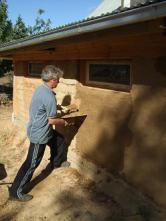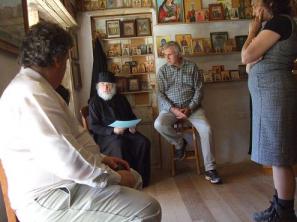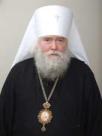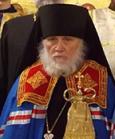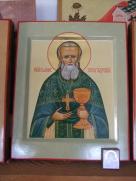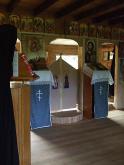Sunday, March 22, 2015
As we prepare for Holy Communion
Great Lent is a time during which all Orthodox Christians deepen their spiritual struggle. While fasting and repenting, they prepare for Holy Communion. St Theophan the recluse offers this advice to us for the time between the evening service, at which we have Confession, and the Liturgy in the morning.
According to our established order, there is usually a little time between Confession and Communion, most often only evening, morning and Liturgy. During this time it is important to carefully preserve the good frame of mind with which you left the church after Confession, and apply it to your Communion with the Lord in Holy Communion.
1. Preserve your attention undistracted and your heart undisturbed. Take care not to become scattered or anxious over cares, and remove yourself from everything; go within and remain there with one thought about the Lord, Who is able to come to you. Put away all thought processes, and, concentrating on the One Lord, pray to Him with undistracted prayer of the heart.
2. If your thought cannot reside only in this, occupy it with thoughts of Communion itself; and so that it will not stray too much, bind it with the words of the Lord and the holy Apostles about this Sacrament.
3. Contemplate a saying of the Lord or the holy Apostles; glean some edification from them and dispose yourself to contrite prayer. When prayer comes, fall down before the Lord and do not abandon the prayer for as long as it is present.
4. Occupy the evening in this way until sleep closes your eyes. Morning comes. As soon as you come to yourself upon awaking, first of all resurrect your awareness of the greatness of the dawning day. But do not bustle about, do not be distracted with many things; and keep your attention focused on that which is necessary to be with you and in you. Beware! The enemy will be trying to tempt you in every way, to put your soul in a bad mood, to either scatter your thoughts, or generate some displeasure against someone. Attend to yourself, praying to God, and you will escape these stumbling blocks.
5. Entering the church, feel as though you were in the upper chamber at Sion, where the Lord communed his holy Apostles, and heed more than ever what is being sung and read, directing everything to the thought that the Lord Himself is preparing a supper of salvation for you.
6. Warm your faith in the actual presence of the Lord and Saviour Himself in the Mysteries. Going from faith and concentrating on the Lord Himself as if already approaching you, in self-abasement cry out: I am not worthy that Thou shouldst enter under the roof of my house. From self-abasement pass to the fear of the Prodigal Son, not cutting you off, but bringing you to a state of reverent soberness. Inasmuch as the Lord Himself invites you and asks you to approach, be ready to approach with good hope, desire, and thirst, like the deer panting after the Lord Himself, and longing with assurance to receive the Lord Himself, together with all the treasure of life that is hidden within Him. From this longing, which will not be put to shame, again turn to yourself in readiness to meet the Lord, and fan ever stronger the flame of heartfelt contrition, repeating the promise to turn away from sin, even if you have to die doing it.
7. Work hard to stand through the entire service, passing from one of these feelings to another. In this good state finally approach the chalice of the Lord, and upon seeing it, make a bow to the Lord Who approaches you. Opening your lips and heart, receive Him, humbly and reverently calling out with the Apostle Thomas: My Lord and my God!
Glory to Thee, O God! Glory to Thee, O God! Glory to Thee, O God!
Having approached the chalice of the Lord with such a disposition, and stepping away from it, you will feel in your heart: It is truly said, that having communed of divine grace, I am no longer alone but with Thee, my Christ, the three-sunned Light that enlightens the world. From this moment you will begin to bear Christ within yourself. Take care to zealously guard Him there and hold Him within yourself. If Christ is in you, who can be against you? And you will be able to do anything in the Lord Who strengthens you.
St Theophan the Recluse, 19th century
Sunday, March 15, 2015
Fourth week of the Great Fast
The Church has strengthened the faithful in the middle of the Fast by presenting the Holy Cross for them to venerate. Now starts the ascent toward Passion Week.
Today, in the middle of the Fast, we worship with faith the Cross that Thou hast endured in the midst of the earth, o Messiah and Word of God, and we pray also to see Thy Resurrection.
First ode of the Canon, Monday of the fourth week of Lent
However, the fast is not over. We still require divine assistance in everything:
The inhabited earth venerates Thy Cross, o Lord, as the life of creation, and it cries to Thee: By the operation of Thy Cross and through abstinence, keep in profound peace those who praise and bless Thee, o most merciful.
Sedalen, Monday of the fourth week of Lent
The main object of the fast - repentance - must remain clear to us:
I am held fast in the bonds of my countless sins, o Christ, and deliberately, I refuse to seek Thy paths which lead me to salvation. Turn me back by Thy Cross and free me from my blindness, in Thine ineffable mercy and compassion.
Ninth ode of the Canon, Monday of the fourth week of Lent
O ye faithful, let us purify our senses with the light of the Fast, and let us be illumined with the spiritual radiance of the Cross. Let us gaze on it with reverence as it lies this day before us, and venerate it with pure lips and mouth and heart.
First ode of the Canon, Tuesday of the fourth week of Lent
Pilgrims and workers at the Annunciation Hermitage
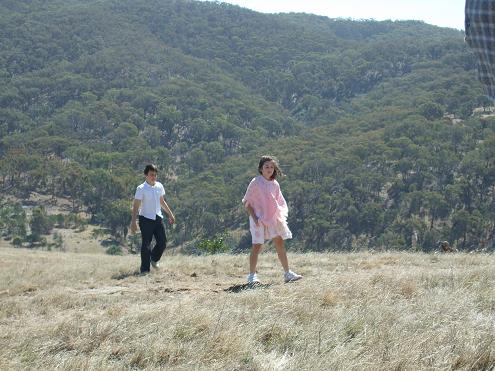
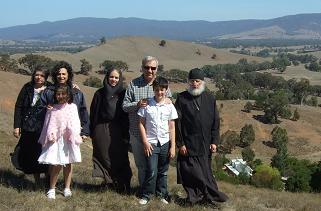 During the third week of Great Lent, three groups of visitors fortified themselves spiritually at the monastery of the Annunciation. The visitors had tours of the monastery, participated in the divine services and helped with work.
During the third week of Great Lent, three groups of visitors fortified themselves spiritually at the monastery of the Annunciation. The visitors had tours of the monastery, participated in the divine services and helped with work.
Sunday, March 1, 2015
Second week of the Great Fast
We have reached the beginning of the second week of Great Lent. The Church urges the faithful on in the spiritual race:
Let us set out with joy upon the second week of the Fast; and like Elijah the Tishbite let us fashion for ourselves from day to day, O brethren, a fiery chariot from the four great virtues; let us exalt our minds through freedom from the passions; let us arm our flesh with purity and our hands with acts of compassion; let us make our feet beautiful with the preaching of the Gospel; and let us put the enemy to fight and gain the victory.
Stikhira at Vespers on the Sunday of Orthodoxy
From all the divine service texts of Great Lent, it is clear that keeping the fast is not as simple as abstention from certain foods. It is an attitude of reverence, fear of God, prayer and repentance. None of these would themselves be possible without the help of God:
As we set out upon the second week of the Fast, direct our steps, O Lord: Shine upon us with the sanctifying light of Thy commandments, and make us worthy to offer on bended knees a prayer acceptable to Thee: For Thou art our Father and we are Thy sons. With feast we sing Thy praise and call upon Thy name.
Sedalen at Matins on Monday of the second week of Lent
Christians must be active with the other virtues in order for Lent to be profitable. For example, almsgiving is most appropriate at this time:
Fast, then, by lifting up acts of almsgiving before [God’s] eyes, by doing what you do with love for your neighbour, by being holy. What you take from yourself, give to someone else so that your needy neighbour’s body may be restored by the affliction of your own. The Lord says through the prophet: “What you fasted and mourned, did you fast for Me? And when you eat and drink, do you not eat and drink for yourselves?” He eats and drinks for himself who nourishes his body with the Creator’s common gifts, without regard for the needy; and he fasts for himself if he does not bestow upon the poor what he takes for a time from his own use, but keeps it instead to fill his own stomach later.
St Gregory the Great(6th century)
God sees all our feeble struggles in the present fast, and every good deed we manage to complete with His help and blessing.
Be of good cheer, but work, strive earnestly; for nothing shall be lost. Every prayer, every psalm you sing, every good deed, every marriage duly observed, continence kept for God’s sake is recorded…for you shall rise [from the dead] clothed with your own sins, or else with your righteous deeds.
St Kyril of Jerusalem (4th century)
Friday, February 27, 2015
The Earliest Prayer to the Theotokos
By Sophia Desiatov
![]() In the Church services, there are many prayers concerning the Most Holy Virgin Mary, Mother of our Lord Jesus Christ. We have feasts that commemorate Her life and hymns that exalt Her name. One such prayer is the oldest known prayer to the Theotokos, known as ‘Beneath thy compassion’. Written on a piece of papyrus and originally in Greek, the prayer dates back to approximately 250 A.D, and asks the Holy Virgin to protect us from all danger.
In the Church services, there are many prayers concerning the Most Holy Virgin Mary, Mother of our Lord Jesus Christ. We have feasts that commemorate Her life and hymns that exalt Her name. One such prayer is the oldest known prayer to the Theotokos, known as ‘Beneath thy compassion’. Written on a piece of papyrus and originally in Greek, the prayer dates back to approximately 250 A.D, and asks the Holy Virgin to protect us from all danger.
What’s interesting about the prayer is the use of Theotokos, which means ‘she who gave birth to God’ or ‘God-bearer’ in Greek. The only time the name Theotokos was mentioned was during the Third Ecumenical Council in 431 A.D, when the Nestorian heresy came about. Nestorius, the Patriarch of Constantinople, said in his teachings that the Virgin Mary should be called Christotokos (‘Christ-bearer’) instead of Theotokos. Nevertheless, the Council condemned Nestorius and his doctrine and defended the Virgin Mary’s rightful title of God-bearer. However, this prayer illustrates that the term was more than a theological concept and was already in use well before the time of the Ecumenical Council.
Ὑπὸ τὴν σὴν
εὐσπλαγχνίαν
καταφεύγομεν
Θεοτὸκε• τὰς ἡμῶν
ἱκεσίας μὴ παρ-
ίδῃς ἐν περιστάσει
ἀλλ᾽ ἐκ κινδύνου
λύτρωσαι ἡμᾶς
μόνη ἁγνὴ
μόνη εὐλογημένη.
In English:
Beneath your
compassion
we take refuge,
Theotokos! Our
prayers, do not despise
in necessities,
but from danger
deliver us,
only pure,
only blessed one.
It’s fascinating that a soulful and spiritual prayer has been circulated throughout the Christian world and is still used today in Church services. It only serves to illustrate that the Holy Theotokos is with us and will intercede for us on our behalf, if we have fervent prayer in our hearts.
A modern Russian rendition of the same prayer:
Sunday, February 22, 2015
Beginning of the Great Fast
Fasting was ordained in Paradise. The first injuction was delivered to Adam that he was not to eat of the tree of the knowledge of good and evil. “Thou shalt not eat” is a law of fasting and abstinence. The general argument is rather against excess than in support of ceremonial abstinence. In Paradise there was no wine, no butchery of beasts, no eating of flesh. Wine came in after the flood. Noah became drunk because wine was new to him. So fasting is older than drunkenness….Fasting begets prophets, strengthens strong men. Fasting makes lawgivers wise, is the soul’s safeguard, the body’s trusty comrade, the armor of the champion, the training of the athlete. The conclusion, however, is a warning against mere carnal abstinence. Beware of limiting the good of fasting to mere abstinence from meats. Real fasting is alienation from evil. Loose the bands of wickedness. Forgive your neighbour the mischief he has done you. Forgive him his trespasses against you. Do not fast for strife and debate. You do not devour flesh, but you devour your brother. You abstain from wine, but you indulge in outrages. You wait for the evening before you take food, but you spend the day in the law courts. Woe to those who are drunken, but not with wine! Anger is the intoxication of the soul, and it out of its wits like wine….May the Lord, Who has brought us to this period of time, grant to us, as to gladiators and wrestlers, that we may show firmness and constancy in the beginning of contests!
St Basil the Great, 4th centuryThere is a drunkenness not of wine but of hatred. THis more than anything else causes God to turn away. As for the devil, he attempts to bring it about in those who pray and fast. He prompts them to remember wrongs, he directs their thoughts toward harboring malice, and he sharpens their tongues for slander. So brethren, in this time of fasting and prayer, let us with all our hearts forgive anything real or imaginary we have against anyone. May we devote ourselves to love! Let us consider one another as an incentive to love and good works, speaking in defense of one another, having good thoughts and dispositions within us before God and men. In this way our fasting will be laudable and blameless, and our requests to God will be readily received.
St Gregory Palamas, 14th centuryWe are told: It is of no great consequence to eat non-fasting food during the Great Fast. It is of no consequence if you wear expensive and beautiful outfits, or go to the theater, or attend parties and masquerade balls. It is of no import if you use expensive chine and furniture. It is of no matter if you acquire expensive carriages and dashing steeds, amass and hoard things, etc. Yet what is it that turns our heart away from God, away from the Fountain of Life? Because of what do we lose eternal life? Is it not because of gluttony, of expensive clothing like that of the rich man of the Gospel story, is it not because of theater and balls? What turns us hard-hearted toward the poor and even toward our relatives? Is it not our passion for sweets, for satisfying the belly in general, for clothing, for expensive dishes, furniture, carriages, for money and other things? Is it possible to serve Christ and Belial? That is impossible. Why did Adam and Eve lose Paradise? Why did they fall into sin and death? Was it not because of one evil? Let us attentively consider why we do not care about the salvation of our soul, which cost the Son of God so dearly. Why do we compound sin upon sin? Why do we fall endlessly into opposing God and choosing a life of vanity? It is not because of a passion for earthly things and especially for earthly pleasures? What makes our hearts become crude? Why do we become flesh and not spirit, perverting our moral nature? Is it not because of a passion for food , drink, and other earthly comforts? How after this can one say that it does not matter whether you eat non-fasting food during the fast? The fact that we talk this way is in fact a show of pride, and idle thought, and act of disobedience, a refusal to submit to God, and a separation from Him.
St John of Kronstadt, 20th century
Friday, February 20, 2015
Abbess Alexandra speaks about Saints John and Philaret
Abbess Alexandra of the St John Convent speaks about her spiritual fathers, Saint John of Shanghai and San Fransisco, and St Philaret of New York.
Tuesday, February 17, 2015
Cheese fare week
This week, the Holy Church calls Her children to prepare for the fast by abstaining from meat. Even though we are still celebrating the feast of the Meeting of the Lord, the divine services begin to have a solemn character, calling us all to repentance and cleansing of our souls.
Grant us humbly and in peace to pass through the days of cleansing that prepare us for the Fast. In Thine ineffable love for mankind, o Christ our God, destroy the wicked schemes of the enemy and preserve us all by Thy Cross, for Thou alone knowest the secrets of man’s heart.
Sedalen, Matins on Wednesday of Cheese week
On Wednesday and Friday this week, we make prostrations with the prayer of St Ephraim the Syrian, emphasising that our souls should already be fasting from sin. Although many people tend to over-indulge in cheese and eggs this week, this is not at all what the Church intended for us:
The grace of the holy Fast has begun to shine upon us, cleansing our unstable thoughts and driving away the darkness of our surfeiting. Let us, then, accept this grace with eager faith.
Ode 9 of the Canon, Matins on Wednesday of Cheese week
It is important to remember that the bodily virtue of fasting, although indispensable, is only a tool by which the Christian hopes to gain spiritual virtues:
If thou dost fast from food, my soul, yet dost not cleanse thyself from passions, thou dost rejoice in vain over thine abstinence. For if thy purpose is not turned toward amendment of life, as a liar thou are hateful in God’s sight, and thou dost resemble the evil demons who never eat at all. Do not by sinning make the fast worthless, but firmly resist all wicked impulses. Picture to thyself that thou are standing beside the crucified Saviour, or rather, that thou art thyself crucified with Him who was crucified for thee; and cry out to Him: Remember me, o Lord, when Thou comest in Thy Kingdom.
Stihira, Matins on Wednesday of Cheese week
Read also the February “Shepherd” magazine from the Brotherhood of Saint Edward in the United Kingdom, which contains more materials on the approaching Great Lent.
Wednesday, February 11, 2015
The three Holy Hierarchs in humbling conditions
The three holy hierarchs, St Basil the Great, St Gregory the Theologian, and St John Chrysostom, lived in times of great turmoil for the Church. Although there was no more persecution from pagans, heretics and Christians of weak faith and poor moral standards stood up against the holy ones.
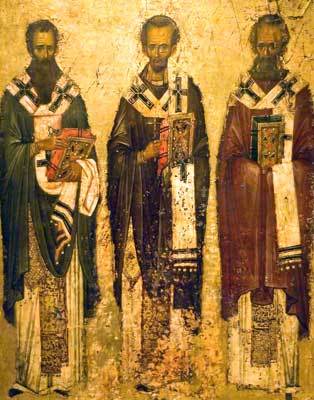 In AD379, when the faithful in Constantinople talked St Gregory the Theologian into becoming their bishop, the Orthodox had no churches in the capital city. The Arian heretics held them all.
In AD379, when the faithful in Constantinople talked St Gregory the Theologian into becoming their bishop, the Orthodox had no churches in the capital city. The Arian heretics held them all.
St Gregory stayed with a relative in the city, and converted one of the rooms of his relative’s house into a Church, dedicated to the Resurrection, not only of Christ our Lord, but also, the resurrection of Orthodoxy. By fervent prayer, daily services, and daily instructional sermons, St Gregory began to convert the city back to Orthodoxy. But it was not easy.
In the midst of wolves I built up a congregation
St Gregory the Theologian, 4th century
St John Chrysostom suffered many unjust accusations, exile and death in a strange land without support because he offended the vanity of the Empress and many less than virtuous clergymen. Councils even anathematised the holy man!
….he, hurrying on to the completion of his design, although we had declared our readiness to clear ourselves of the charges in the presence of a hundred yea or a thousand bishops, and to prove ourselves innocent as indeed we are, would not consent: but in our absence, when we were appealing to a synod, and demanding a trial, and not shrinking from a hearing of our cause, but only from open enmity, he both received our accusers and absolved those who had been excommunicated by me, and from them, who had not yet cleared themselves of the offences laid to their charge, he received complaints against me, and had minutes made of the proceedings, all which things are contrary to law, and the order of the canons. But what need is there of a long story? He did not cease doing and contriving everything until, with all possible display of arbitrary power and authority, he ejected us from the city and the church, when the evening was far advanced and all the people were streaming after us. Being drawn by the public informer through the midst of the city, and dragged along by force I was taken down to the sea, and thrust on board ship, and made a night voyage, because I appealed to a synod for a just hearing of my cause. Who could hear these things without tears, even if he had a heart of stone?
St John Chrysostom, 4th century
St Basil the Great also experienced ill treatment from heretics, and described the persecution as harder to bear than what the martyrs endured from the pagans before:
In my judgement, the war that is waged against us by our fellow countrymen is the hardest to bear, because against open and declared enemies it is easy to defend ourselves, while now we are necessarily at the mercy of those who are associated with us, and are thus exposed to continual danger….Our father were persecuted, but by idolators…The persecutors, who have lately appeared, hate us no less than they, but, to the deceiving of many, they put forward the name of Christ, that the persecuted may be robbed of all comfort from its confession, because the majority of the simpler folk, while admitting that we are being wronged, are unwilling to reckon our death for the truth’s sake to be martyrdom. I am therefore persuaded that the reward in store from the righteous Judge is greater than that bestowed on the former martyrs. They indeed both had the public praise of men, and received the reward of God; to you, though your good deeds are not less, no honours are given by the people. It is only fair that the requital in store for you in the world to come should be far greater….I exhort you, therefore, not to faint in your afflictions, but to be revived by God’s love, and to add daily to your zeal, knowing that in you ought to be preserved that remnant of true religion which the Lord will find when He comes on earth….If traitors have arisen from among the clergy themselves, let not this undermine your confidence in God. We are saved not by names, but by mind and purpose, and genuine love toward our Creator….Remember that it is not the multitude who are being saved, but the elect of God…If but one be saved, like Lot at Sodom, he ought to abide in right judgement, keeping his hope in Christ unshaken, for the Lord will not forsake His holy ones.
St Basil the Great, 4th century
In view of the lives of the three holy hierarchs, is there any reason for the Orthodox today to fear? No longer does the Arian heresy trouble the Church (although it still exists in a different form). Today, it is the heresy of Ecumenism that is the greatest threat. The true Orthodox understand that in abstaining from communion with heretics, in attending humble house-churches instead of glorious cathedrals, they are indeed following in the footsteps of the saints!
O Holy Hierarchs, Basil the Great, Gregory the Theologian, and John Chrysostom! Strengthen all the Orthodox, console and uplift us! Make us firm on the path of salvation through suffering for Christ, in cleansing ourselves from sin through sincere repentance, and struggling for piety by fulfilling His commandments!
Monday, February 9, 2015
Remember the second coming, and be sobered
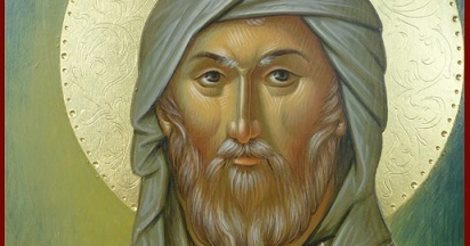
Lift your eyes to Heaven, when it, like a clean mirror, gloriously illumines the earth with its stars, and say in awe: If the stars shine with such glory, then how much more so will the righteous and the saints who have done the holy will of God shine with the inexpressible light of saving glory when the Lord comes.
Having called to remembrance that awesome coming, shudder in body and soul, and with heartfelt agony say to yourself: What sort of person will I, a sinner, show myself to be in that terrible hour? How will I stand before the throne of the awesome Judge? How could I, who am dissolute have a place among those who are perfect? Or how could I, who am a goat, stand among the sheep at Christ’s right hand? Or how could I, who am fruitless, be numbered among the saints, who have here brought forth the fruits of truth?
The martyrs will their torments, the ascetics their good works; but what will I have to show but my apathy and my incessant indulgence?
O sinful soul, shameless soul, o soul which has always hated the God-pleasing way of life! How long will you delight in your wretched addiction to evil thoughts? What do you wait for in your apathy?
Do you think that the Judge will be late in coming? He will not tarry; rather, His coming will be like terrible lightning from the heavens.
Try to be prepared for that terrible hour, that you might not then weep unto the ages.
St Ephraim the Syrian, 4th century
